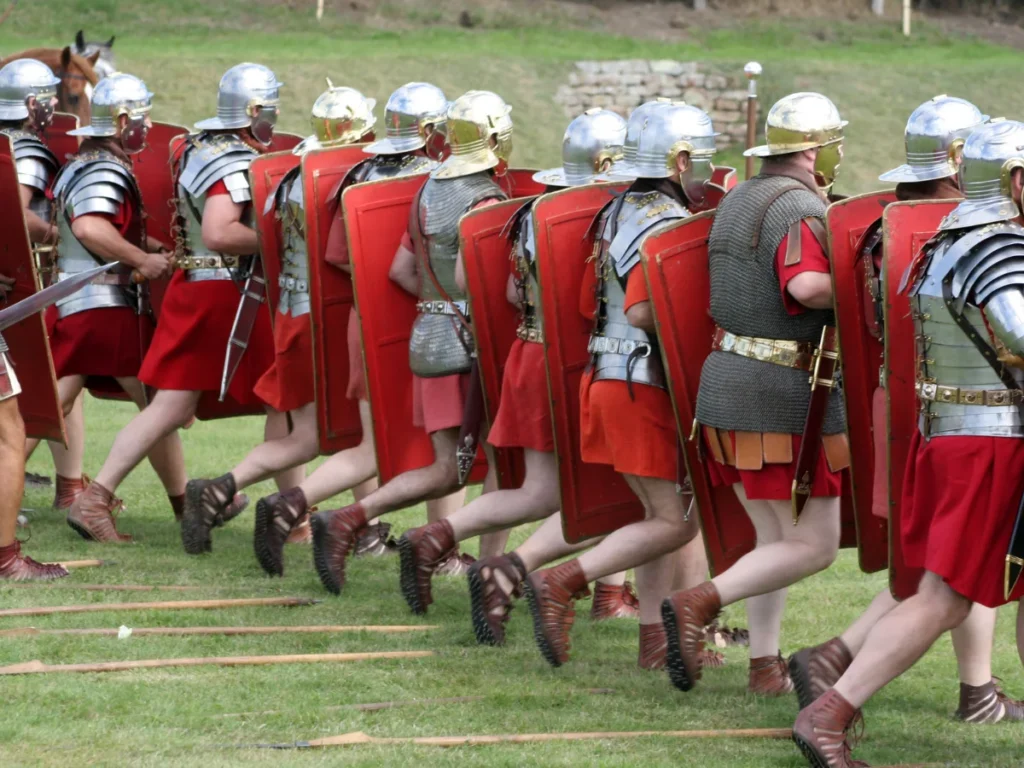The Achaean war was a pivotal event in the Roman conquest of Greece
The Achaean War was a pivotal event in the Roman conquest of Greece, signifying the culmination of Rome’s dominance over the Greek city-states. This conflict emerged due to tensions between the Achaean League and Rome, leading to a decisive battle at Corinth. Rome’s victory resulted in the dissolution of the League and the destruction of Corinth, reshaping Greece’s political landscape under Roman control. This war marked the end of Greek city-state autonomy and highlighted Rome’s expanding power in the ancient world.

The Achaean war was a pivotal event in the Roman conquest of Greece
The Prelude to the Achaean War:
The Achaean War of 146 BCE was a pivotal event in the Roman conquest of Greece. It emerged from the ashes of previous conflicts and political tensions between Rome and the Achaean League. As the Roman Republic expanded its dominion, Greece became a focal point in its quest for supremacy.
Roots of Conflict:
The Achaean League had traditionally been an ally of Rome, but as Roman power grew, tensions flared. The League’s leadership, led by figures like Critolaus and Diaeus, became increasingly discontented with Rome’s interference in Greek affairs. Encouraged by growing anti-Roman sentiments, the Achaean League decided to challenge Roman dominance.
The Outbreak of War:
In 146 BCE, the Achaean League declared war on Rome. The League was banking on support from other Greek states and the Seleucid Empire, but this aid did not materialize as they had hoped. Rome responded swiftly, and the conflict escalated into a full-scale war.
The Battle of Corinth:
The decisive moment of the Achaean War came with the Battle of Corinth. Roman legions, commanded by Lucius Mummius, faced off against the Achaeans. The Romans’ superior military organization and discipline proved to be too much for the Greek forces. The Battle of Corinth ended in a resounding Roman victory.
The Aftermath:
The aftermath of the Achaean War was dire for the Greeks. Corinth, a symbol of Greek culture and prosperity, was destroyed by the Romans. Southern Greece was divided into two provinces under Roman control. The Achaean League was dissolved, marking the end of Greek city-state autonomy.
Consequences and Legacy:
The Achaean War marked the culmination of Rome’s dominance over Greece and signaled the end of Greek independence. The Roman Republic now held uncontested authority in Greece, reshaping the region’s political landscape. Greek culture continued to thrive within the Roman Empire, but it was under the umbrella of Roman rule.
In conclusion, the Achaean War of 146 BC was a pivotal moment in history, as it solidified Roman control over Greece and marked the decline of the independent Greek city-states. It was a testament to the expanding power of Rome and its determination to assert its dominance in the ancient world.
More History

The engineering of the Colossus of Rhodes
Ancient Rhodes astonished the world, crafting the majestic Colossus monument, using copper and iron, spanning the harbor, symbolizing victory and unity. It is one of the seven wonders of the world.

Antisthenes’ teachings attracted notable students
Antisthenes’ profound teachings drew in prominent disciples, fostering intellectual growth and philosophical exploration, laying the groundwork for a legacy that influenced generations of thinkers.

Seleucid Empire was founded by Seleucus I
Seleucus I, a dynamic figure, established the Seleucid Empire, shaping a powerful realm that stretched across vast territories, marking a significant chapter in ancient history and Hellenistic expansion.
